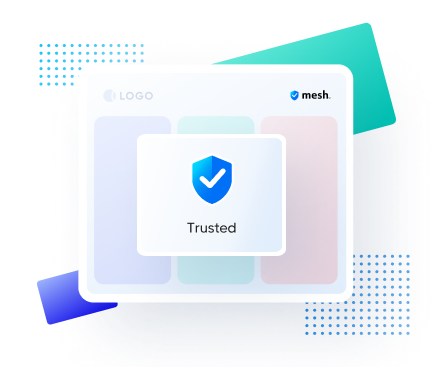Can You Trust Your Buyers and Sellers?
For buyer verification, the process should be streamlined to quickly onboard B2B customers while conducting moderate due diligence. On the seller side, a deeper verification should be done to identify those with past offenses or marketplace bans, thus ensuring the integrity and compliance of the business. By adopting these specific approaches, the verification process enables the business to efficiently and effectively meet the needs of different customer types.


Industries
Stringent business verification are required to verify more B2B buyers and sellers while stopping fraud at the door.
Expanding Marketplaces require scaling supply and growth with legitimate entities.
and Services
Onboarding businesses and trade professional without the risk is foundational to Homes Services and Construction.
Accelerating vendor qualification and managing subcontractor compliance are critical to business operations.

Streamline Buyer Onboarding
When it comes to buyer onboarding, the emphasis should be on financial stability, payment history, and compliance with transaction regulations. As such, the onboarding process should prioritize efficiency while conducting moderate due diligence.
- Ensure financial solvency and reliability for transactions
- Perform moderate due diligence, focusing on creditworthiness and purchasing power
- Consider assessing credit risk and payment reliability
- Review purchase history and references from other sellers
- Conduct ongoing monitoring and purchase behavior analysis
- Review compliance with financial transaction regulations, such as anti-money laundering (AML)
- Prioritize overall credit line and payment terms versus individual transactions
- Emphasize transparency in financial capability and stability

Verify Trustworthy Sellers
Bad actors often reuse tactics that work. Preventing fraud starts with the ability to quickly identify sellers banned from other marketplaces and implementing an automated monitoring process to distinguish trustworthy sellers from fraudsters.
- Assess the risk of fraud, misrepresentation, and non-compliance with policies or laws
- Conduct extensive due diligence, including legal compliance, financial health, and reputation
- Prioritize verifying legitimacy, operational status, and compliance with regulations
- Verify business licenses, tax ID numbers, proof of address, certificates of incorporation
- Continuously monitor for compliance, operational changes, and market reputation
- Perform higher scrutiny on listing authenticity, product/service quality, and transactional integrity
- Focus on overall business transparency, including financials, operations, and legal standing
- Analyze customer reviews, marketplace ratings, and third-party endorsements for credibility
Products


Business Verify
The most comprehensive coverage and up to date business identity and risk data
Learn moreReady to get started?
Explore Mesh, get onboard within seconds and power your business with fully automated, scalable, ultra-fast
business verifications and continuous monitoring.
